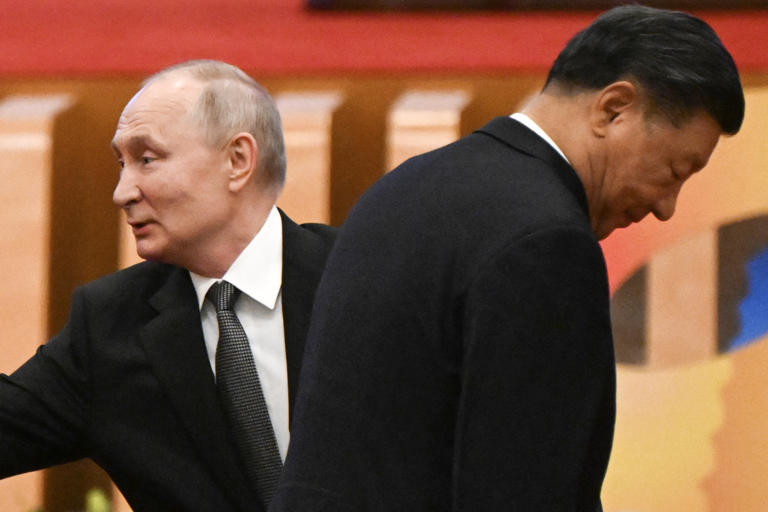Chinese state-owned banks are implementing tighter restrictions on funding for Russian clients, citing concerns over potential secondary sanctions from the U.S.
Reports indicate that at least two banks are reassessing their Russian businesses, intending to sever ties with clients on the U.S. sanction list and cease financial services to the Russian military sector.
The move follows the recent announcement by the U.S. Treasury Department to impose secondary sanctions on overseas financial institutions aiding Moscow’s efforts in Ukraine. This includes processing Russia’s transactions for military equipment purchases. The decision underscores the escalating economic ramifications of the ongoing conflict.
While Kremlin spokesperson Dmitry Peskov acknowledged the sensitivity of the situation for the involved companies, he emphasized that it does not impact the Russian government’s relations with China. Despite the financial adjustments, trade between the two nations remains robust, with Russia reporting a higher-than-expected volume of bilateral trade, surpassing $200 billion.
China’s foray into the Russian banking sector after Western banks withdrew post-Russia’s invasion of Ukraine has played a crucial role in sustaining the Russian economy. However, Beijing’s recent caution and alleged fear of Western sanctions signal a nuanced approach, reflecting China’s ambivalence toward Moscow since the conflict’s onset.
As China becomes Russia’s largest fossil fuel importer, the potential impact of these financial measures could pose challenges for the Kremlin. Beijing’s reluctance to fully endorse the war in Ukraine and provide substantial military assistance underscores the delicate balance in the Sino-Russian relationship.
Analysts warn that Russia’s increasing reliance on China might have long-term consequences. Chris Weafer, CEO of Macro-Advisory Ltd., highlights concerns about insufficient investment replacing the void left by exiting Western companies. While China remains a vital trade partner, the geopolitical landscape raises questions about the sustainability of this economic alliance.


